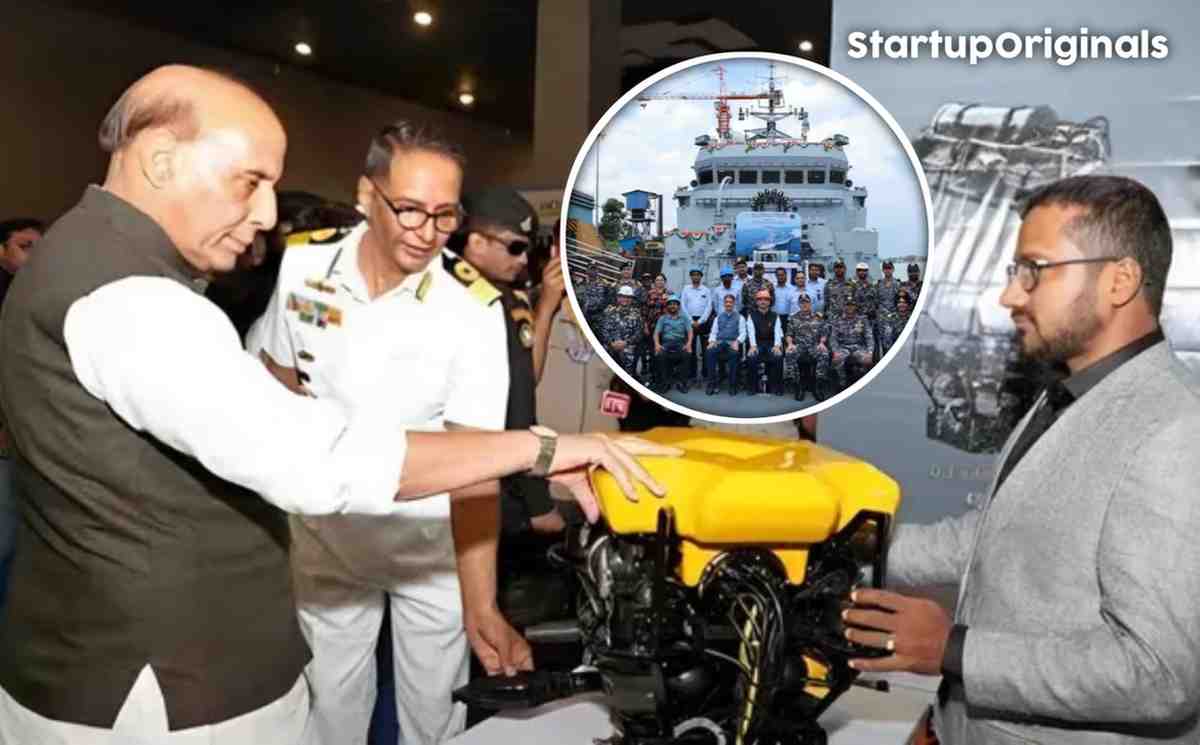
The Indian Navy has signed a ₹66 crore deal with Coratia Technologies, a deep-tech startup from Odisha, to supply indigenously developed Underwater Remotely Operated Vehicles (UWROVs). The purpose is to enhance underwater operations like ship hull cleaning, salvage work, and inspections of submerged infrastructure. This marks a significant step in India’s push for self-reliance in defence technology.
What the Deal Involves
- Coratia will deliver UWROVs that are designed and manufactured in India. These include platforms such as Jalasimha and Jaladuta. They will be used for tasks like ship hull cleaning, minor salvage operations, infrastructure inspections under water, and survey work.
- A key product in this batch is the Jalasimha, which recently achieved Technology Readiness Level 9 (TRL-9) after rigorous testing, implying that it is ready for deployment in operational naval contexts.
Who Is Coratia Technologies
- Coratia is incubated at the National Institute of Technology (NIT), Rourkela, Odisha, placing it among India’s emerging deep-tech startups in defence robotics.
- The co-founders include Debendra Pradhan (CEO) and Biswajit Swain (CTO), who have emphasized frugal design, cost-efficiency, and dual-use capabilities (defence and civil applications).
Strategic Importance & Benefits
- This contract supports Make in India and Atmanirbhar Bharat agendas, reducing reliance on foreign suppliers for mission-critical underwater systems.
- Indigenous robots like these help avoid issues such as tariff uncertainties, trade restrictions, or delays due to imports.
Current Status & Market Potential
- Coratia recently raised ₹17.4 crore in a pre-Series A round, led by MGF Kavachh and supported by Pontaq Ventures India. The funds will be used to scale R&D, strengthen intellectual property rights (IPR), and explore exporting this underwater robotics technology.
- The global underwater robotics market is expected to grow significantly: from about US$5.08 billion in 2025 to US$9.53 billion by 2030. This growth underscores the potential demand for Coratia’s offerings.
Conclusion:
The ₹66 crore contract with Coratia Technologies is a landmark move by the Indian Navy. It illustrates how India is increasingly betting on domestic deep-tech capabilities to secure its maritime interests, embrace dual-use technologies, and reduce dependency on imports. For Coratia, this is its first major defence contract, and it could well open doors for more innovation, scaling, and export in the underwater robotics space.




